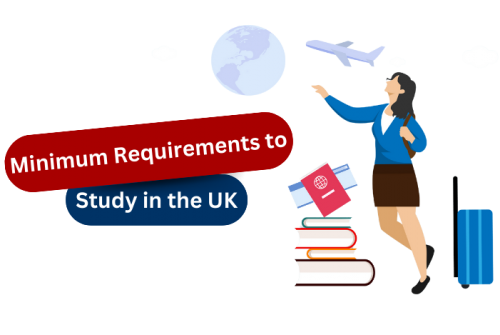
Minimum Requirements to Study in the UK

The United Kingdom is a popular destination for international students due to its prestigious universities and vibrant culture. However, before traveling to the United Kingdom to study, you should be aware of the minimum entry requirements. This blog will address the academic, language proficiency, and documentation requirements for studying in the United Kingdom.
The academic requirements for studying in the UK vary depending on the level of study and the university or programme in which you enroll. Generally, you will need:
The language in which you will study for the program must be formally specified on the certificate.
If you plan to study in the UK, you will need to have a specific level of English ability. Standardized test scores will be utilized for evaluating your English skills. The most widely accepted tests are the following:
Minimum overall IELTS score of 5.5-6.5, including at least 5.5-6.0 in each of the four components. PTE (Pearson Test of English) requires a score between 58-65 for most universities. There are many universities who accept Oxford ELLT as well.
Because the UK has some of the best universities in the world and a large number of prospective students, they are very selective about who they accept. To distinguish great candidates from other applications, something more is necessary, which may be accomplished by giving verification of relevant references and experiences. To demonstrate their professional competence, applicants might have to demonstrate the amount of time they spent in that specific experience, the function they played, and the relevance of that experience to their professional sector for certain courses.
It is not an obligatory condition for studying in the UK and depends on the choice of the universities. The last step in the admissions process is an interview, which gives the admissions committee insight into a candidate's objectives and motivations as well as how they align with the courses they are interested in. Interviews are most frequently used at highly regarded universities when there are many applicants for a limited number of seats and the admissions committee must rely on them to choose the best candidates.
The application and visa procedure are quite difficult and complex. Bizz Education is here to help you with your international education. Bizz is a comprehensive resource for students looking to study in the UK. Visit us for more information.